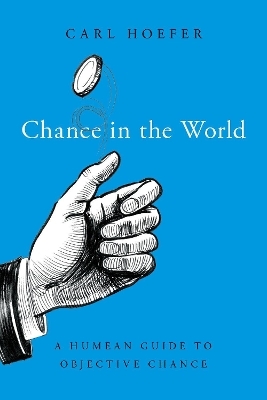
Chance in the World
Oxford University Press Inc (Verlag)
978-0-19-090741-9 (ISBN)
Probability has fascinated philosophers, scientists, and mathematicians for hundreds of years. Although the mathematics of probability is, for most applications, clear and uncontroversial, the interpretation of probability statements continues to be fraught with controversy and confusion. What does it mean to say that the probability of some event X occurring is 31%?
In the 20th century a consensus emerged that there are at least two legitimate kinds of probability, and correspondingly at least two kinds of possible answers to this question of meaning. Subjective probability, also called 'credence' or 'degree of belief' is a numerical measure of the confidence of some person or some ideal rational agent. Objective probability, or chance, is a fact about how things are in the world.
It is this second type of probability with which Carl Hoefer is concerned in this volume, specifically how we can understand the meaning of statements about objective probability. He aims to settle the question of what objective chances are, once and for all, with an account that can meet the demands of philosophers and scientists alike. For Hoefer, chances are constituted by patterns that can be discerned in the events that happen in our world. These patterns are ideally appropriate guides to what credences limited rational agents, such as ourselves, should have in situations of imperfect knowledge. By showing this, Hoefer bridges the gap between subjective probability and chance. In a field where few scholars have given adequate treatment to interpreting statements of chance, Hoefer develops a philosophically rich theory which draws on the disciplines of metaphysics, ontology, and philosophy of science.
Carl Hoefer studied Philosophy of Science and Philosophy of Physics at Stanford University, supervised by Nancy Cartwright and Peter Galison. From 1991 to 1998 he taught at the University of California, Riverside; from 1998 - 2002 at the London School of Economics; and since 2002 he has been an ICREA Research Professor in Barcelona. He is interested in understanding the metaphysics of the natural world.
Analytic Table of Contents
List of Boxes
Introduction
Chapter 1: Metaphysical Preliminaries
1.1 Humean Objective Chance (HOC): a first sketch
1.2 The Humean Mosaic
1.3 The Dialectics of primitive chance
1.4 Chance as hypothetical infinite-run frequency: Propensities made respectable?
1.5 Summing Up
Chapter 2: From Lewisian Chance to Humean chance
2.1 PP
2.2 Time and Chance
2.3 Lewis' Best System Analysis of laws and chance
2.4 Chance and Determinism
2.5 Chance credence
2.6 Summing Up
Chapter 3: Humean Objective Chance
3.1 The basic features
3.2 Examples
3.3 The Best System of Chances
3.4 More about the contents of the Best System
3.5 Summing Up
Chapter 4: Deducing the Principal Principle
4.1 Deducing the reasonableness of PP
4.2 PP and the epistemology of HOC
4.3 Other accounts and PP
4.4 Summing Up
Chapter 5: Undermining
5.1 Undermining - what is it?
5.2 Is the contradiction real?
5.3 The Lewis-Hall solution
5.4 Independence for Humeans
5.5 The NP solution redeemed
5.6 Summing Up
Chapter 6: Macro-level and Micro-level Chances
6.1 A Chance for all Setups?
6.2 Epistemology of micro-derived chances
6.3 Micro-derived chances and PP
6.4 Summing Up
Chapter 7: Humean Chance in Physics
7.1 Introduction
7.2 Classical Statistical Mechanics
7.3 Quantum Chances
7.4 Summing Up
Chapter 8: Chance and Causation
8.1 A reductive relation?
8.2 Bob's great presentation
8.3 The Cause-Credence Principle
8.4 More on causation
Closing remarks
Bibliography
| Erscheinungsdatum | 23.02.2019 |
|---|---|
| Reihe/Serie | Oxford Studies in Philosophy of Science |
| Verlagsort | New York |
| Sprache | englisch |
| Maße | 213 x 145 mm |
| Gewicht | 431 g |
| Themenwelt | Geisteswissenschaften ► Philosophie ► Erkenntnistheorie / Wissenschaftstheorie |
| Geisteswissenschaften ► Philosophie ► Metaphysik / Ontologie | |
| Mathematik / Informatik ► Mathematik | |
| ISBN-10 | 0-19-090741-X / 019090741X |
| ISBN-13 | 978-0-19-090741-9 / 9780190907419 |
| Zustand | Neuware |
| Haben Sie eine Frage zum Produkt? |
aus dem Bereich


